As babies, we do not have many expectations of ourselves or others.
For the most part, we operate outside of social convention under the direct influence of our basic needs and emotions.
However, as we mature into adulthood, behaving in this way becomes increasingly unacceptable.
For example, as adults we are expected to eat in a dignified manner.
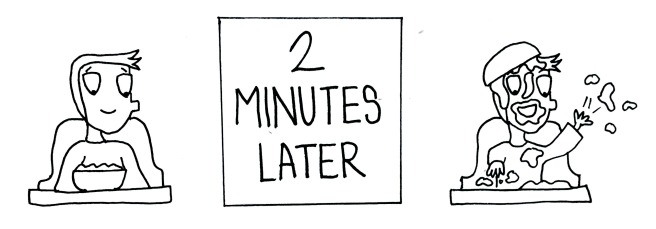
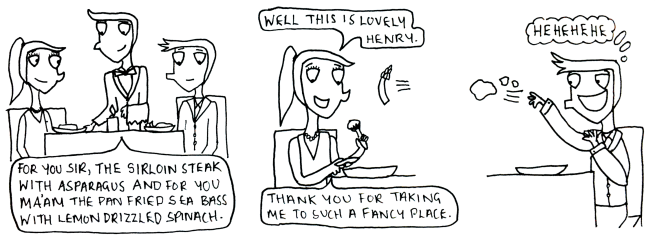
We are expected to exert control over our bodily functions.
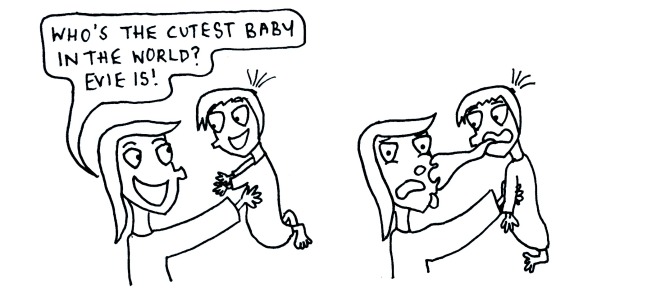
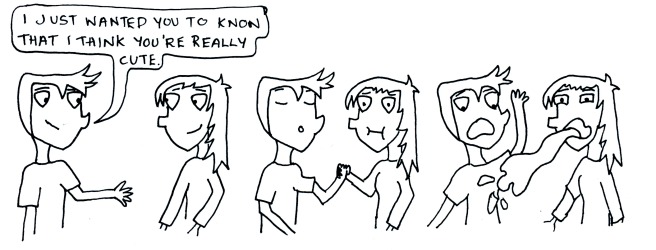
We are expected to read age appropriate literature.
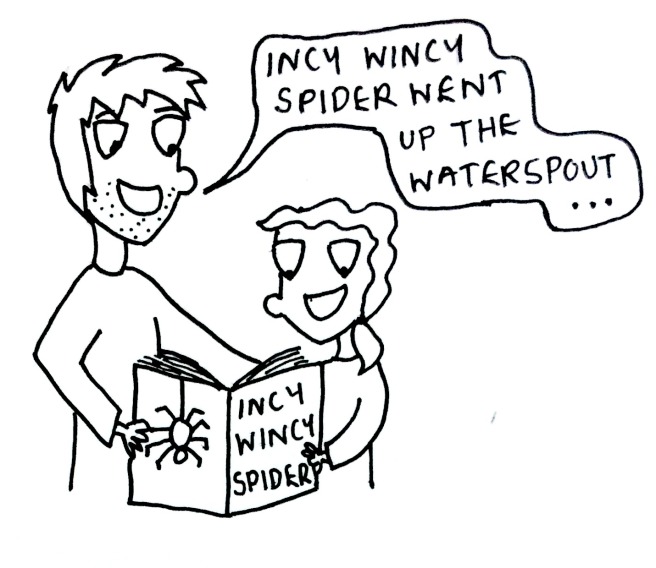
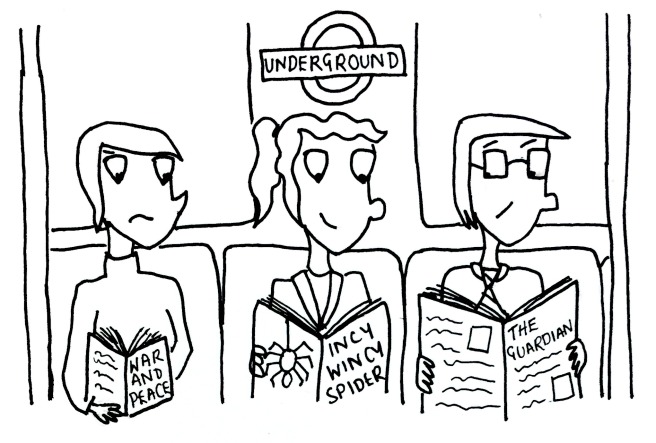
We are expected to rely on ourselves as opposed to our parents.
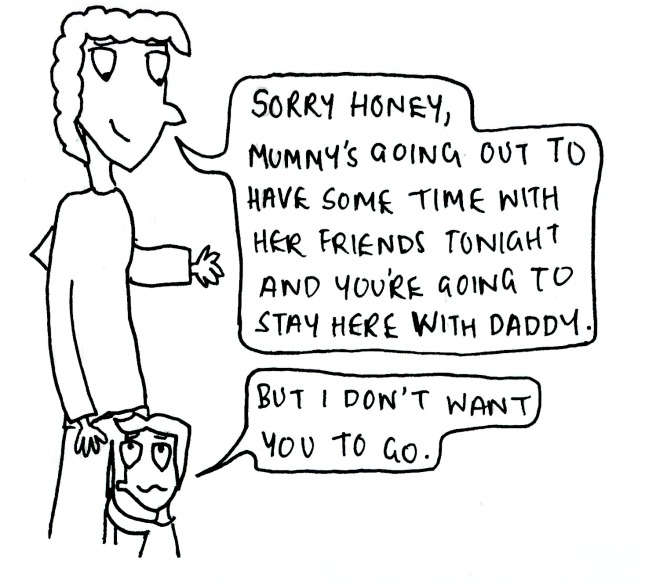
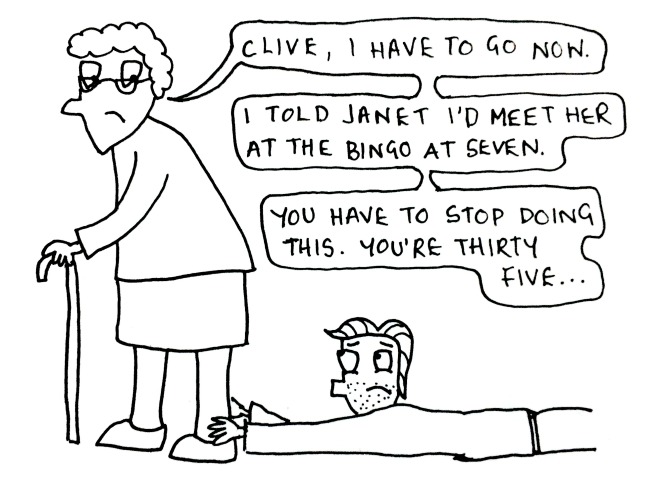
In order to retain our place in the bubble of social acceptance, between infancy and adulthood, we are taught to act.
We learn behavioural mechanisms which allow us to cope with certain social situations in a suitable way.
With enough practice, performing in a socially acceptable manner becomes habitual.
I encountered the first true test of my performance skills on my first day of primary school.
I knew that I was supposed to be interacting with the other children but my ability to do so was impaired by the fact that there were lots of people that I didn’t know.
This was overwhelming and then totally paralysing to my four year old brain.
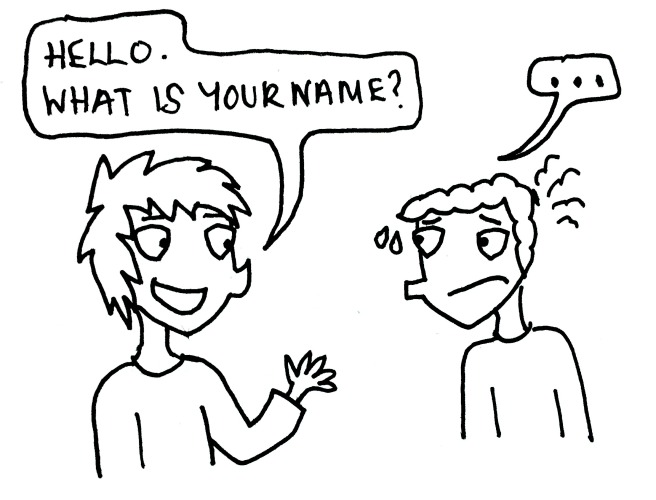
My reluctance to speak was troubling for my teachers, although I am unsure if this was due to the fact that it affected my ability to participate in their lessons or because I regularly looked like one of those kids from The Shining.
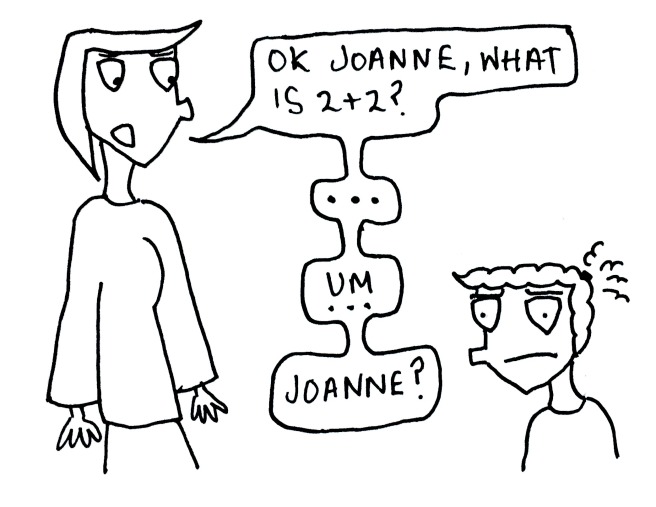
After the shock of my first day, my stage fright extended for several months into the academic year.
Eventually, I did develop the ability to say words.
However, I soon discovered that saying words when you are in group of people often results in you becoming the centre of attention.
For me, being the centre of attention was a lot like being the centre of the Earth in that it made me feel under a massive amount of pressure and my cheeks had a tendency to become very hot.
As a result, I tried to divert any form social attention away from me.
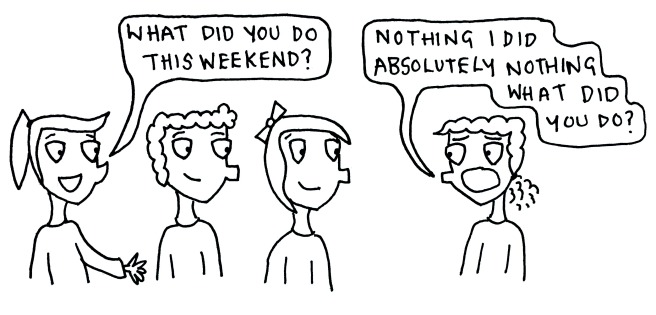
As a child, your understanding of the wider world is limited and it therefore easy to operate under the misconception that you are the most important thing in existence.
As a four year old, I believed that I was the centre of the universe.
On top of this, not interacting with people left a lot of space in my brain for thinking about other people interacting.
This manifested itself in an unhealthy tendency to assume that when people were talking without me, they were talking about me.
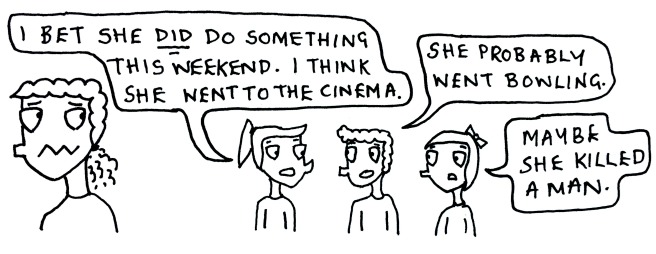
In fact, it is much more likely that they were talking about something infinitely more interesting.
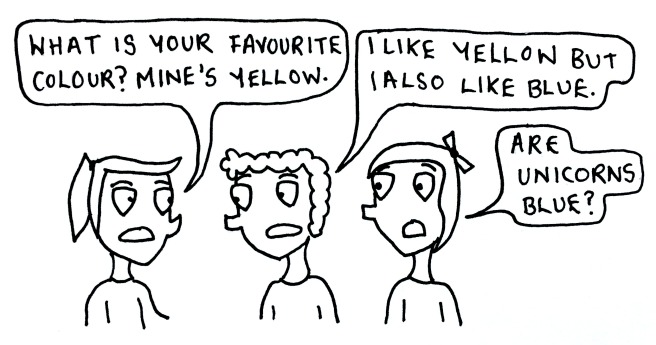
My uncomfortable relationship with social interaction extended outside of the educational environment.
When I was 10, my mum decided that I was old enough to order my own ice creams.
This was a distressing development because I liked ice creams and was now required to interact with a human that I didn’t know in order to obtain one.
I cannot remember exactly what the lady at the ice cream stand looked like when I first ordered an ice cream but I’m pretty sure she was over sixty years of age, had soft white hair that looked like a small cloud floating on top of her head and was wearing woollen top with an image of a cat embodied into it.
I was terrified of her.
I was fully aware of the fact that, at that specific point in time, the lady’s primary purpose was to sell ice cream whilst providing me with a satisfactory customer experience.
However, a part of me still assumed that she would be shocked and outraged if I asked for one.
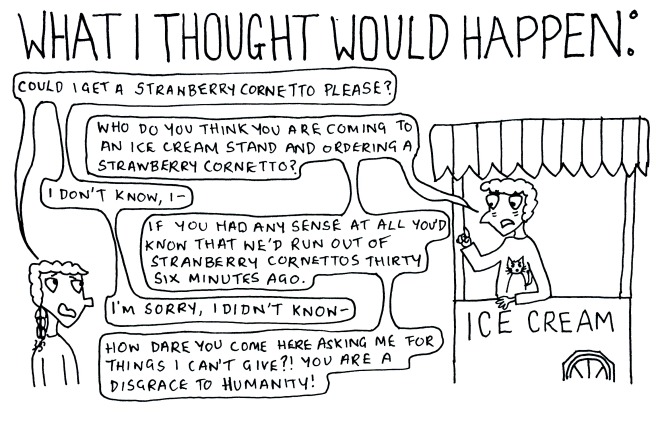
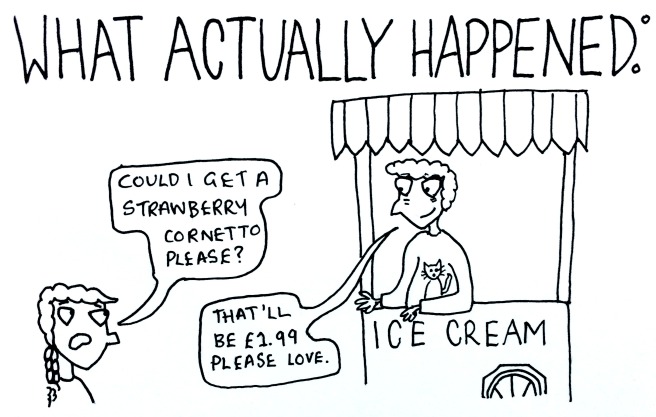
As a teenager, I didn’t like the taste of coffee very much and was therefore excited to discover that you could overwhelm its natural bitterness with the sickening sweetness of artificial flavouring by buying a caramel latte at Starbucks.
I was less excited about the fact that I would have to order it.
However, repeated exposure to the source of fear can be an effective technique in reducing many anxieties and, by this point in my social development, I had developed a sufficient amount of self-awareness to realise that my initial feelings of stress and anxiety were often due to the fact that I had imagined an intimidating social situation in my head.
I knew that the best way to address these feelings was to face them head on and to immerse myself in the social situation before I had the chance to overthink it.
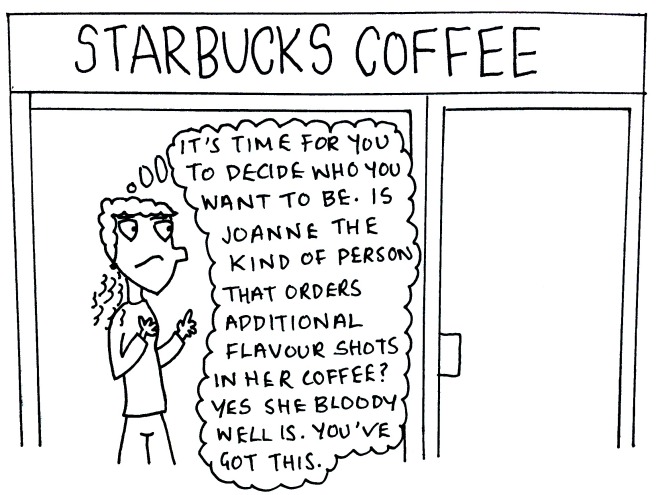
I practiced my lines for a few minutes, saying the words ‘one medium caramel latte please’ to myself over and over again, before heading into the shop.
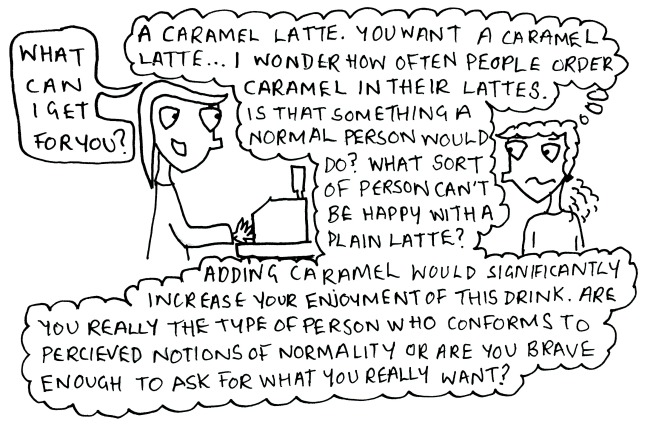
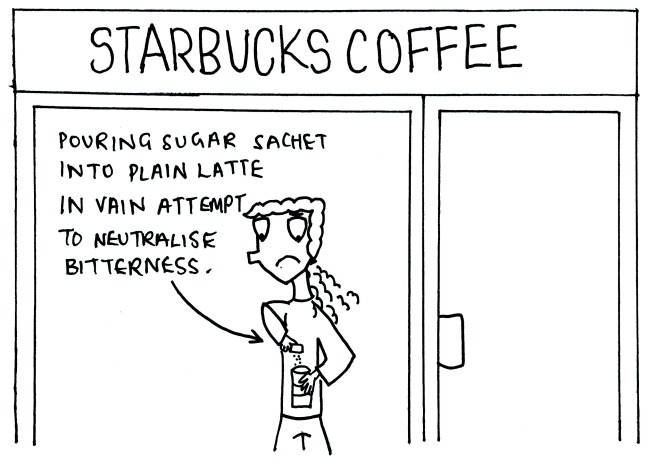

I am gradually learning that the world doesn’t revolve around me and that most of the time people aren’t actually that bothered about the things that I do.
If I have an awkward social interaction with someone, the likelihood is that they won’t lay in bed that night thinking about how strange and weird I was and are instead much more likely to be thinking about how strange and weird they perceive themselves to be.
I actually like socialising now, although I am unsure if I am enjoying the experience of connecting and communicating with people or the rush of triumph I experience after performing a successful interaction.
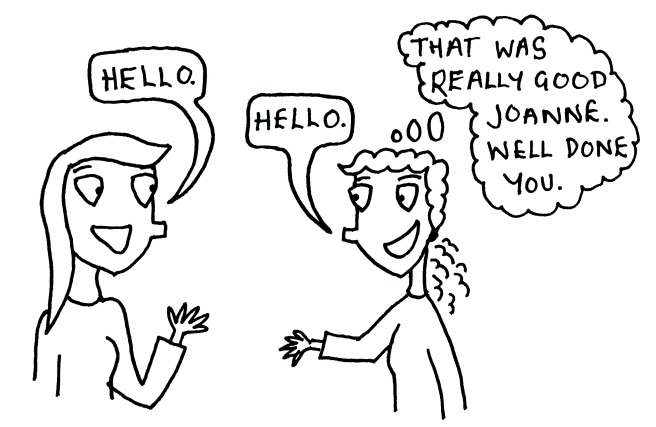
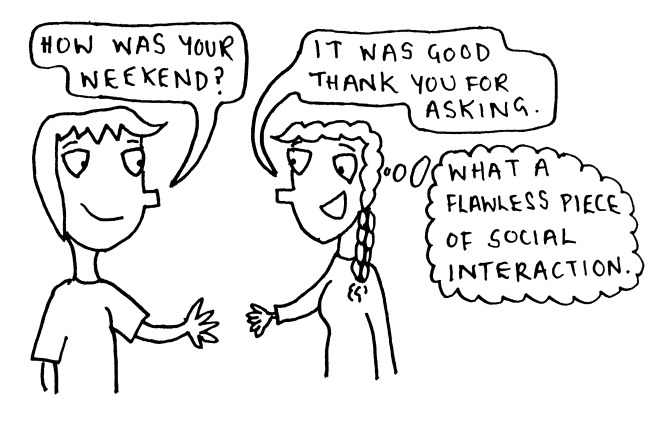
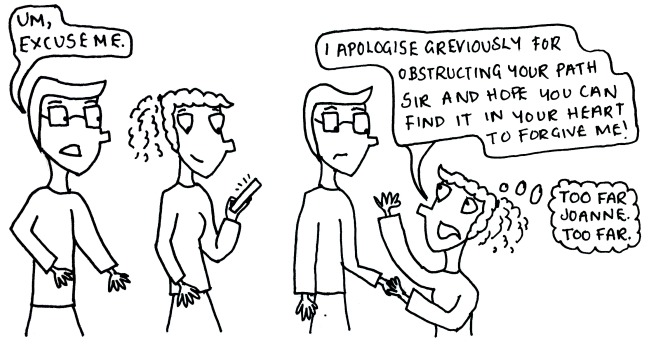

This made me chuckle! I can relate so much!
LikeLike
Thank you!
LikeLiked by 1 person
I am so much like this, it isn’t even funny. I have so many more words in my head than ever come out from my mouth. All the world is an awkward stage .
LikeLike
I know right! 🙂
LikeLike
This is so well observed and so funny. Painfully accurate! Loved it 🙂
LikeLike
Thanks! Glad you enjoyed it 🙂
LikeLiked by 1 person
I love your blog! It is hilarious!
LikeLike
Thank you very much 🙂
LikeLiked by 1 person
Woah.. relatable!
LikeLiked by 1 person
I loved this!!! Hilarious!!
LikeLiked by 1 person
I’m pretty sure that the voice in my head is an echo of yours. Hilariously relatable!
LikeLike
Thanks!
LikeLike
Oh I just adore this post. I can relate so much to what you are saying. My mind tends to work much the same way yours does and you have a wonderful way of keeping yours in check. Best wishes to you.
LikeLike
Thank you very much – really nice of you to say 🙂
LikeLike
This is so true. My mouth doesn’t form what my brain think, mind, it may be good none of my thousands of worries and neuroses are verbalised!
LikeLiked by 1 person
Lovely post. The title cracked me up. 😀
LikeLike
Thank you!
LikeLike
Great post. Funny too! One thing I remind myself constantly is that people in general have short memories. That moment that you thought was completely embarrassing probably barely registered for the other person because they are so loaded down with other stuff. Even if it did soon the moment will be forgotten as other matters press in.
LikeLike
Thank you! Very true 🙂
LikeLiked by 1 person
It is that social awkwardness that makes me want to blog! A voice without the attention (or at least anonymous attention! Funny post!!
LikeLike
Totally! Introverted people do have a voice – they just have another voice in their head that tells them not to let it out.
LikeLiked by 1 person
You always make me laugh out loud. It’s the combination of what you write coupled with your drawings. Perfect.
LikeLike
Thanks Barb! Means a lot 😊
LikeLiked by 1 person